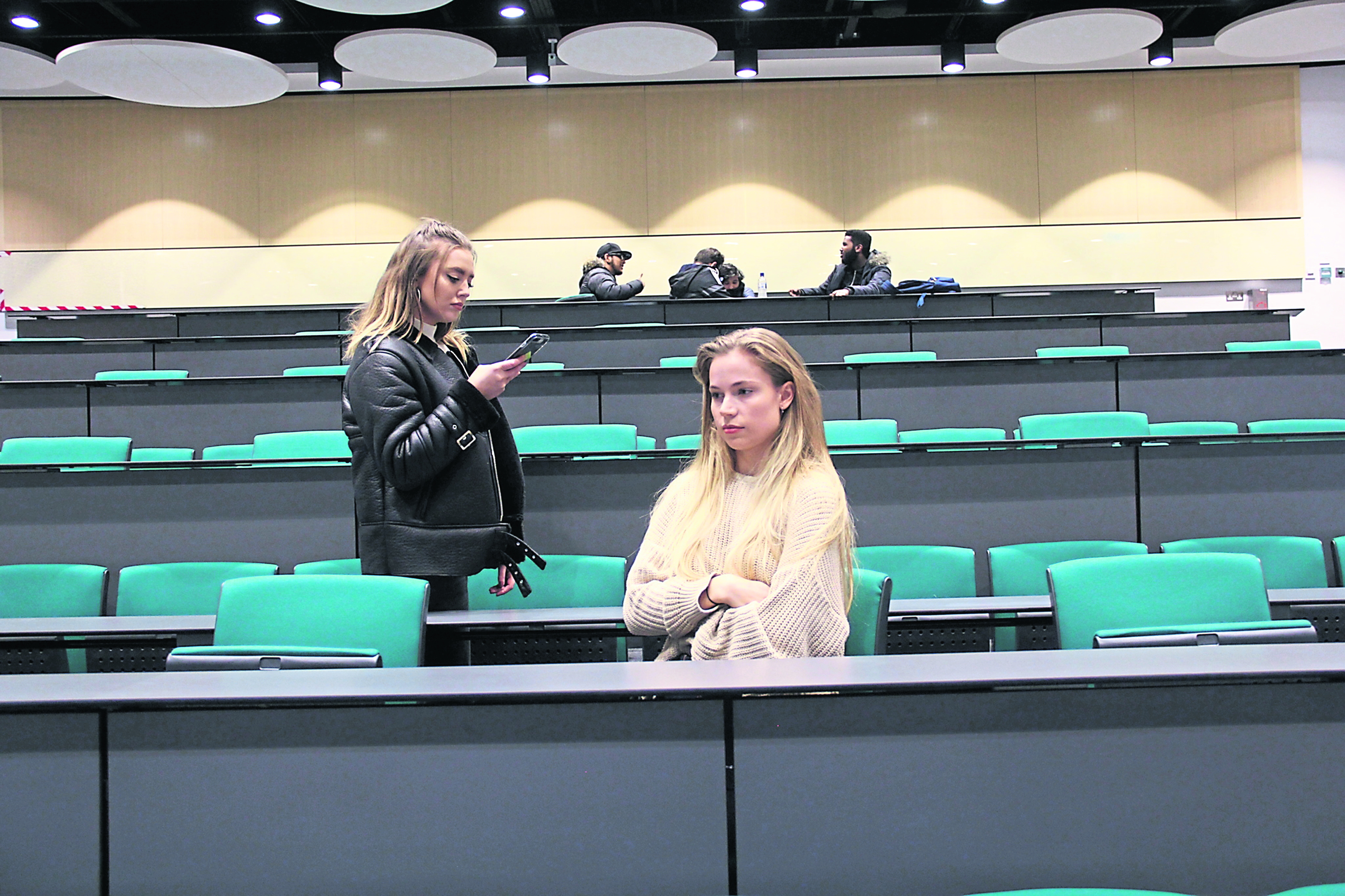The Faculty of Science, Engineering and Computing has introduced a door policy that denies latecomers entry and students are not happy. But should the university deny you entry because the bus didn’t arrive on time?
FOR: Why be late when you can be early?
by Sofie Smedsrud
Students of the Faculty of Science, Engineering and Computing (SEC) are petitioning the decision to deny access to late-comers entry into the classroom. Their argument is that students should be allowed up to 10 minutes late in the case of ‘unforseen circumstances’. There’s no doubt that being late is something that eventually will happen to everyone, but that doesn’t mean that the university should facilitate it.
One morning, by 9:27am, I counted eight people who had arrived late. They hurried into the room, slumped into their seats and whispered to their friends as they sat down. I couldn’t help but wonder how so many people could be so late. Is it necessary to grab a £3 coffee and be late?
Many commuters, like myself , manage to get to university on time. It is simply about planning ahead. Commitment alone is enough motivation to take an earlier train every day. People manage to get to work every day, and I don’t see why we should view university as anything different. If you are late for an actual job too many times, they show you the door. Why should we treat university as any different?
The problem is we are trying to establish a specific timeframe in which it is acceptable to be late. The argument goes that students should have ten minutes to get to the lecture regardless of how they get to uni, or how they have to travel. But what is the real difference between ten and 20 minutes? Why should the people who slept in be allowed to be treated any differently?
Perhaps we should look at the new policy as a good thing. It can make people more organised, take the earlier train and be able to fully concentrate in class. Isn’t that how you will get your money’s worth?
‘Unforseen circumstances’ is a guarantee in life. It is why some of us carry an umbrella, or have three-year-old condoms in our wallets, and why we make sure to always take an earlier train when going somewhere.
The university cannot force you to take an earlier train, to check your alarm is set or to go to bed earlier. The active choice of being on time for your course is one of the very few things that are completely reliant on you. They provide you with the responsibility and training, and you provide them with your commitment and professionalism.
It is a professional deal in which you have decided to invest thousands of pounds. Why spend £50,000 on something you don’t prioritise?
Missing a workshop is temporary, but your professional mannerisms are not. Your lecturer is never late to work. Neither should you.
[divider]
AGAINST: The SEC policy is like rewinding back to primary school…
by Aimee Wilson
The current SEC policy states that if a student does not arrive on time for a lecture, the lecturer can deny entry. Essentially that means if you accidentally get up for university ten minutes later than usual, you shouldn’t bother going in because you will be turned away at the door.
We are all spending over £9,000 per year on tuition, which entitles us to the full access of our timetabled lectures. How can a university turn away students for being late to a service that we pay for ourselves? Not to mention the humiliation of being denied access from your own lecture.
One argument for the SEC policy is that when students arrive, it is disruptive to other students. But wouldn’t it be more disruptive for students if someone knocked on the door and was dismissed from coming in?
The late-door policy does not take into account the daily troubles that public transport can have. A vast majority of students rely on public transport to travel to university which may have unpredictable circumstances and can cause lateness. In a recent survey conducted by The River, one in five students commute to university by train, some spend up to two hours to travel from home. Kingston is also an area of high volumes of traffic so students shouldn’t be held responsible if their bus is late because of this.
The SEC policy is like rewinding back to primary school, where pupils are punished for their tardiness. The policy is as pointless as it is insulting, KU are treating us like kids. Surely if our university is trying to implement professional traits in students, then being turned away from lectures isn’t going to benefit us.
The university can drum in professional characteristics through alternative ways. I can understand if a student misses a deadline for an assignment then they deserve a disciplinary action. However, I can’t understand sanctions for students who are late to lectures because of bad luck. Imagine if a student’s train was delayed so they were denied entry to a workshop which was marked towards their final grade.
The SEC late door policy is a barrier to students’ freedom at university. SEC courses are intense and carry huge workloads. This can cause students to have a lack of sleep from doing more work to keep up so they shouldn’t be punished for oversleeping.
The argument is about order and double standards. Lecturers are often late to their own lecture, but you would not see a student turn around and say “you’re ten minutes late, our lecture is now cancelled.”

